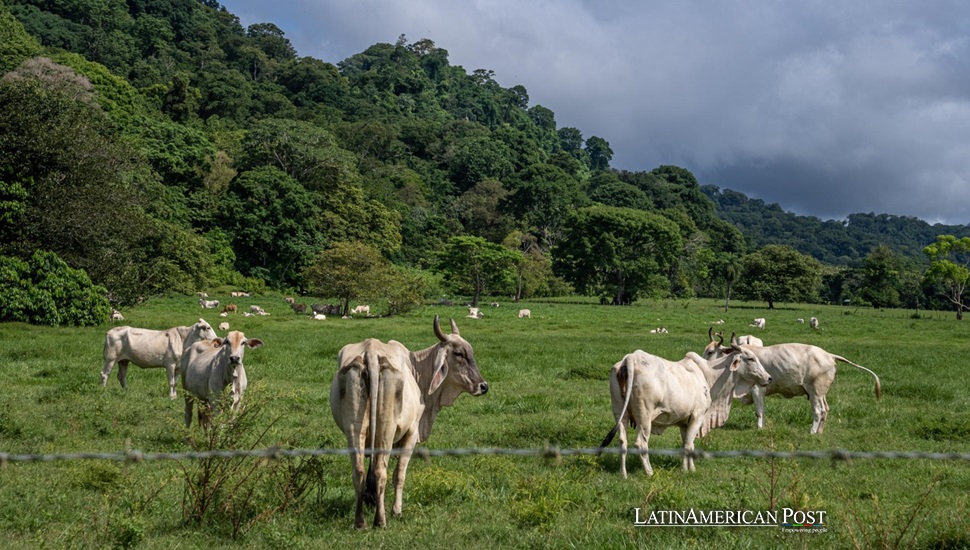The Unbelievable Case of Uruguay’s $3 Million Gallstone Smuggling Ring

Two Uruguayan siblings were recently sentenced for trafficking $3 million worth of bovine gallstones to Hong Kong, uncovering a surprising underground trade in prized animal by-products used in traditional Chinese medicine.
A Shocking Discovery in Uruguay’s Cattle Industry
Uruguay is known for its thriving cattle industry, with more cows than people in the country. The sight of vast herds grazing on Uruguay’s rolling fields is as common as it is iconic, but hidden behind this rural idyll lies an unusual and illicit trade that few could have imagined. Last month, two siblings from Uruguay were sentenced for smuggling a highly unexpected commodity: bovine gallstones.
The case, which has caught the attention of authorities and the public alike, involved the trafficking of over $3 million worth of gallstones harvested from slaughterhouses in Uruguay. These gallstones, found in cattle bladders during meat processing, were exported to Hong Kong, where they are highly prized in traditional Chinese medicine. The operation, spanning several Uruguayan departments, revealed the strange intersection of cattle farming and a little-known yet lucrative international market.
The man behind the smuggling ring, a 50-year-old Uruguayan, was sentenced to more than two years in prison for smuggling and money laundering. His sister, who was also involved, received a lesser sentence of 18 months, which was converted to probation. While Uruguay is no stranger to agricultural exports, the trafficking of gallstones has shone a light on a hidden facet of its cattle industry, one that authorities are now working hard to expose.
Lucrative Gallstone More Valuable Than Gold
At the heart of this bizarre case lies the astounding value of bovine gallstones, a commodity few outside of niche markets have heard of. According to court documents, the Uruguayan siblings were paying slaughterhouses between $198,000 and $200,000 per kilogram of gallstones—far exceeding the price of gold, which stands at around $83,000 per kilogram. This staggering value has made gallstones a highly sought-after product, particularly in markets like Hong Kong, where they are used in traditional Chinese medicine.
Their purported medicinal properties drive the market for gallstones. In traditional Chinese medicine, bovine gallstones are believed to have anti-inflammatory effects and are used to treat various ailments, including fever. Though the medical efficacy of gallstones is not universally recognized, their value in certain cultures has led to a thriving trade, with prices that have soared in recent years.
The Uruguayan smugglers’ profit margins were immense. The investigation revealed that they were making around $8,000 per kilogram in profit by selling the gallstones to companies in Hong Kong. The operation netted the siblings $3.2 million in bank transfers from their Asian clients. In a country like Uruguay, where cattle farming is a significant industry, the lure of such profits may have been too tempting to resist.
Smuggling From Slaughterhouses to Hong Kong
The details of the smuggling operation show just how extensive and well-organized the scheme was. According to Interpol and Uruguayan court documents, the siblings sourced the gallstones from five different departments nationwide, working with slaughterhouse owners and staff to obtain the valuable stones. These gallstones, extracted during the meat processing phase, were then sent via DHL to companies in Hong Kong, identified in the investigation by the initials H.H.L. and H.T.B.T.C.
The defendants used various tactics to launder the profits, including transferring large sums of money to bank accounts in Uruguay and purchasing high-value assets. Court documents revealed that the pair deposited $188,000 into the sister’s bank account and used their earnings to buy a vehicle and property in Montevideo valued at approximately $2.5 million. Authorities later seized these assets as part of the investigation.
While this may sound like a far-fetched operation, it highlights the challenges law enforcement faces when dealing with illicit trades operating in plain sight. In Uruguay, where cattle farming is a dominant industry, the gallstone trade flew under the radar for years. Only recently have authorities begun to crack down on these smuggling rings, shining a spotlight on the unusual but highly lucrative business.
The Strange Appeal of Bovine Gallstones in Chinese Medicine
The use of gallstones in traditional Chinese medicine dates back centuries when they were considered valuable for their purported healing properties. Often referred to as “bezoar stones,” bovine gallstones are believed to help with various conditions, including detoxifying the body, reducing inflammation, and even alleviating fever. While scientific research on these claims is limited, the demand for gallstones in markets like Hong Kong has remained strong.
This high demand has fueled a global trade in gallstones, particularly in countries with large cattle industries like Uruguay. In traditional Chinese medicine, gallstones are sometimes used as ingredients in herbal remedies or combined with other medicinal substances to create treatments. The appeal of these stones lies not only in their supposed medicinal benefits but also in their rarity and the difficulty of sourcing them.
The case of the Uruguayan gallstone smugglers sheds light on how a seemingly obscure product has become a multimillion-dollar commodity. It also raises questions about such a trade’s ethical and legal implications, especially when it intersects with animal agriculture and global supply chains. For the siblings involved in this operation, their attempt to capitalize on the gallstone demand ultimately led to their downfall. Still, it also highlights a broader issue that few outside the industry know.
Also read: Paraguay’s Shrinking River Fuels Conflict Between Fishers and Farmers
The strange and untold story of Uruguay’s gallstone smuggling ring offers a glimpse into a hidden and lucrative trade. The staggering value of bovine gallstones, driven by demand from traditional Chinese medicine, led two siblings to orchestrate a multimillion-dollar operation, sourcing gallstones from slaughterhouses and exporting them to Hong Kong. As authorities continue to crack down on illicit trades, the case raises intriguing questions about the intersection of agriculture, medicine, and global commerce. For now, the fascinating saga of Uruguay’s gallstone smugglers stands as one of the more unusual stories to emerge from the country’s booming cattle industry.





